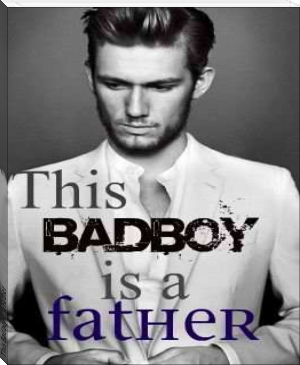The Intrusion of Jimmy by P. G. Wodehouse (new books to read .txt) 📗

- Author: P. G. Wodehouse
Book online «The Intrusion of Jimmy by P. G. Wodehouse (new books to read .txt) 📗». Author P. G. Wodehouse
"Sir Thomas is his uncle."
"Of course, so he is," said Molly, dryly. "I forgot. That would account for it, wouldn't it?"
Mr. McEachern looked at her with some concern. There was a hard ring in her voice which he did not altogether like. His greatest admirer had never called him an intuitive man, and he was quite at a loss to see what was wrong. As a schemer, he was perhaps a little naive. He had taken it for granted that Molly was ignorant of the maneuvers which had been going on, and which had culminated that afternoon in a stammering proposal of marriage from Lord Dreever in the rose-garden. This, however, was not the case. The woman incapable of seeing through the machinations of two men of the mental caliber of Sir Thomas Blunt and Mr. McEachern has yet to be born. For some considerable time, Molly had been alive to the well-meant plottings of that worthy pair, and had derived little pleasure from the fact. It may be that woman loves to be pursued; but she does not love to be pursued by a crowd.
Mr. McEachern cleared his throat, and began again.
"You shouldn't decide a question like that too hastily, my dear."
"I didn't—not too hastily for Lord Dreever, at any rate, poor dear."
"It was in your power," said Mr. McEachern portentously, "to make a man happy—"
"I did," said Molly, bitterly. "You should have seen his face light up. He could hardly believe it was true for a moment, and then it came home to him, and I thought he would have fallen on my neck. He did his very best to look heart-broken—out of politeness—but it was no good. He whistled most of the way back to the house—all flat, but very cheerfully."
"My dear! What do you mean?"
Molly had made the discovery earlier in their conversation that her father had moods whose existence she had not expected. It was his turn now to make a similar discovery regarding herself.
"I mean nothing, father," she said. "I'm just telling you what happened. He came to me looking like a dog that's going to be washed—"
"Why, of course, he was nervous, my dear."
"Of course. He couldn't know that I was going to refuse him."
She was breathing quickly. He started to speak, but she went on, looking straight before her. Her face was very white in the moon-light.
"He took me into the rose-garden. Was that Sir Thomas's idea? There couldn't have been a better setting, I'm sure. The roses looked lovely. Presently, I heard him gulp, and I was so sorry for him! I would have refused him then, and put him out of his misery, only I couldn't very well till he had proposed, could I? So, I turned my back, and sniffed at a rose. And, then, he shut his eyes—I couldn't see him, but I know he shut his eyes—and began to say his lesson."
"Molly!"
She laughed, hysterically.
"He did. He said his lesson. He gabbled it. When he had got as far as, 'Well, don't you know, what I mean is, that's what I wanted to say, you know,' I turned round and soothed him. I said I didn't love him. He said, 'No, no, of course not.' I said he had paid me a great compliment. He said, 'Not at all,' looking very anxious, poor darling, as if even then he was afraid of what might come next. But I reassured him, and he cheered up, and we walked back to the house together, as happy as could be."
McEachern put his hand round her shoulders. She winced, but let it stay. He attempted gruff conciliation.
"My dear, you've been imagining things. Of course, he isn't happy. Why, I saw the young fellow—"
Recollecting that the last time he had seen the young fellow—shortly after dinner—the young fellow had been occupied in juggling, with every appearance of mental peace, two billiard-balls and a box of matches, he broke off abruptly.
Molly looked at him.
"Father."
"My dear?"
"Why do you want me to marry Lord Dreever?"
He met the attack stoutly.
"I think he's a fine young fellow," he said, avoiding her eyes.
"He's quite nice," said Molly, quietly.
McEachern had been trying not to say it. He did not wish to say it. If it could have been hinted at, he would have done it. But he was not good at hinting. A lifetime passed in surroundings where the subtlest hint is a drive in the ribs with a truncheon does not leave a man an adept at the art. He had to be blunt or silent.
"He's the Earl of Dreever, my dear."
He rushed on, desperately anxious to cover the nakedness of the statement in a comfortable garment of words.
"Why, you see, you're young, Molly. It's only natural you shouldn't look on these things sensibly. You expect too much of a man. You expect this young fellow to be like the heroes of the novels you read. When you've lived a little longer, my dear, you'll see that there's nothing in it. It isn't the hero of the novel you want to marry. It's the man who'll make you a good husband."
This remark struck Mr. McEachern as so pithy and profound that he repeated it.
He went on. Molly was sitting quite still, looking into the shrubbery. He assumed she was listening; but whether she was or not, he must go on talking. The situation was difficult. Silence would make it more difficult.
"Now, look at Lord Dreever," he said. "There's a young man with one of the oldest titles in England. He could go anywhere and do what he liked, and be excused for whatever he did because of his name. But he doesn't. He's got the right stuff in him. He doesn't go racketing around—"
"His uncle doesn't allow him enough pocket-money," said Molly, with a jarring little laugh. "Perhaps, that's why."
There was a pause. McEachern required a few moments in which to marshal his arguments once more. He had been thrown out of his stride.
Molly turned to him. The hardness had gone from her face. She looked up at him wistfully.
"Father, dear, listen," she said. "We always used to understand each other so well!" He patted her shoulder affectionately. "You can't mean what you say? You know I don't love Lord Dreever. You know he's only a boy. Don't you want me to marry a man? I love this old place, but surely you can't think that it can really matter in a thing like this? You don't really mean, that about the hero of the novel? I'm not stupid, like that. I only want—oh, I can't put it into words, but don't you see?"





Comments (0)